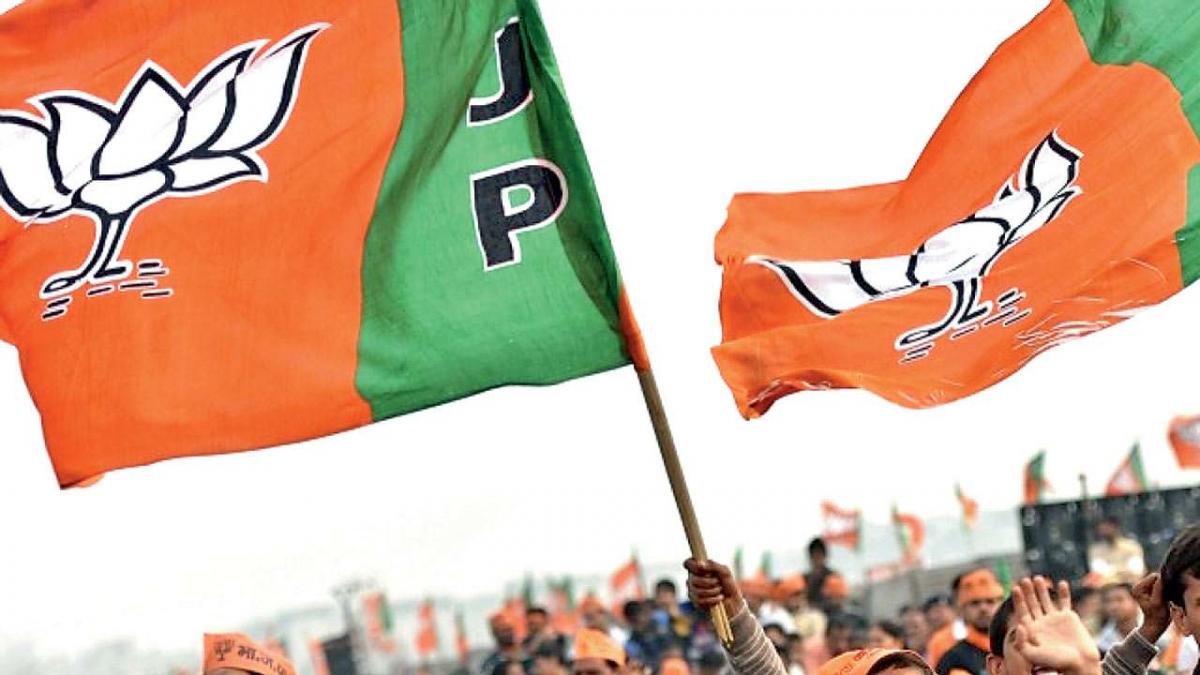80 seats are up for grabs in Uttar Pradesh and 14 and 13 seats in eastern UP go to the polls in the last two phases on May 12 and 19, respectively. BJP is banking on its booth management capabilities to repeat its 2014 performance in eastern Uttar Pradesh.

80 seats are up for grabs in Uttar Pradesh and 14 and 13 seats in eastern UP go to the polls in the last two phases on May 12 and 19, respectively. BJP, along with ally Apna Dal, had won nearly all of them in 2014.
BJP is banking on its booth management capabilities to repeat its 2014 performance in eastern Uttar Pradesh.
While admitting that the BSP-SP-RLD alliance has given it a “real fight” and posed a “big challenge” in the state, top BJP leaders said the party’s “48-hour booth management”, which gives last-mile connectivity to convert the “goodwill” for Prime Minister Narendra Modi into votes will be the crucial factor in the final phases, The Indian Express reported.
The party looks at 48-hour booth management as a process in which party workers focus on polling during the two days between the end of campaigning and the D-day.
“As part of the programme, each party worker will be handed over a sheet of paper — called “parivar parchi” — with names of the head of families in his or her area, and the worker has to contact the families to remind them about voting on polling day. As part of this, the party worker will call up these people and also touch base with them on social media,” the report said.
According to the assessment of BJP’s top leadership, 60 per cent of ground support in the state lies with Modi and the party, and what would eventually matter would be “how to bring voters to the booth” to convert this support into votes, the report added.
In the fourth phase though, in a bid to retain their hold on the prestigious Phulpur seat, the SP and BSP had taken their alliance to the next level—joint booth management. But that was just one seat.
A senior BJP leader who has been active with electioneering in at least three states said the leadership feels that in a scenario where the victory margins could be low, the party’s organisational strength in converting ground support to votes matters the most.
“When the election campaign began, the party had started (by looking at certain victories) on 30 seats, as we were aware of challenges posed by the (SP-BSP) alliance. But things are improving every day. In the last assessment, the BJP will easily cross the 50-seat mark in UP,” this leader claimed in the report.
With strategies prepared for every constituency individually, the cards are played accordingly – be it caste equation, nationalism, or communal polarisation.
BJP leaders acknowledged that the SP and the BSP have been successful in backing each other and transferring votes to the other’s candidates. “But booth-level management of the BJP is super-human. No other party does that level of booth management,” one party leader said in the report.
The booth committees, the sector committees and the mandal units, active on ground for months, are trying to ensure that every possible voter is listed, voter slips are distributed, and the party’s message reaches as many voter as is possible, leaders said. “But the last-mile connectivity has become very important in UP now. We are ensuring man-to-man marking,” a party leader who is working in the state said in the report.
Amit Shah, the BJP national president, was also seen on the streets of Gandhinagar in the last week of April, micro-managing booths and interacting with ground-level karyakartas to ensure maximum turnout. He has trained thousands of party workers in booth management in the past.